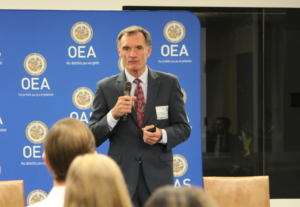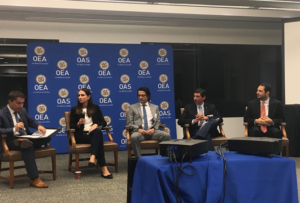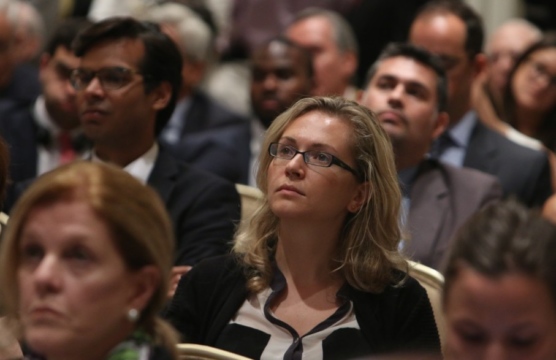Is Latin America Ready to Cope with Climate Change?
As global temperatures continue to rise with the global community stalled on any way to stop them, countries must prepare to adapt to increasingly volatile environmental conditions.
Latin America’s clean power sector, in addition to its predominately urban population, makes the region uniquely positioned to benefit from the uptake of electric vehicles (EVs). Transitioning towards electric mobility could greatly improve urban air quality and insulate the region from volatile oil prices, yet only a handful of countries have made investments in electric technologies. Although progress has been made, Latin America continues to face barriers to EV integration, said panelists at an Inter-American Dialogue event co-hosted by the Organization of the American States (OAS) on September 17. This event was the first of several dialogues in preparation for the IV Energy and Climate Partnership of the Americas (ECPA) Ministerial.
[caption id="attachment_87394" align="alignleft" width="300"] Keynote Speaker Mark Smith[/caption]
Keynote Speaker Mark Smith[/caption]
Robert Honeyghan, Community Relations Officer at the Embassy of Jamaica to the US, introduced the audience to ECPA and its aims. Mark Smith, Program Manager of Technology Integration and Vehicle Technologies at the U.S. Department of Energy, then opened the discussion by outlining the landscape of research and development initiatives for electric mobility in the United States.
[caption id="attachment_87465" align="alignright" width="300"] (L-R) Juan Cruz Monticelli, Lisa Viscidi, Carlos Mojica, Guillermo Areas, and Camron Gorguinpour[/caption]
(L-R) Juan Cruz Monticelli, Lisa Viscidi, Carlos Mojica, Guillermo Areas, and Camron Gorguinpour[/caption]
The main panel, moderated by Juan Cruz Monticelli, explored how to ignite smart transportation in the region by looking at four distinct perspectives, including experiences, policy options, financing, and technologies. Lisa Viscidi, Program Director of Energy, Climate Change & Extractive Industries at the Inter-American Dialogue, identified higher upfront costs, lack of charging infrastructure, and low consumer awareness as challenges facing the region. She recommended the promotion of EV integration in the public transport and commercial sectors, noting that the electrification of bus and commercial fleets shortens the pay-back period associated with EV's higher costs. Carlos Mojica, Urban Transport Senior Specialist for the Inter-American Development Bank, also highlighted the need for new policies, identifying three types of stimuli: direct financing, partnerships between utility and public transport companies, and concessional lending.
Head of LAC Government Relations for BMW Group, Guillermo Areas, stressed how transportation and mobility are shifting culturally across the globe. Rather than increasing the number of cars on the road, he explained that companies like BMW would focus on providing mobility services within the frameworks of autonomous and shared mobility models. Camron Gorguinpour, the Global Senior Manager of Electric Vehicles at the World Resources Institute, ended the discussion by stating the need to find ways to fix transport system structures as a whole, while simultaneously taking advantage of EV uptake.
As global temperatures continue to rise with the global community stalled on any way to stop them, countries must prepare to adapt to increasingly volatile environmental conditions.
As the global financial crisis continues to alter US relations with the hemisphere, greater engagement in the region remains critical to US interests.
Regional integration, social inclusion, and the need for a more competitive business climate—discussed at the XVIII Annual CAF Conference
 OAS/Flickr
OAS/Flickr
 Video
Video